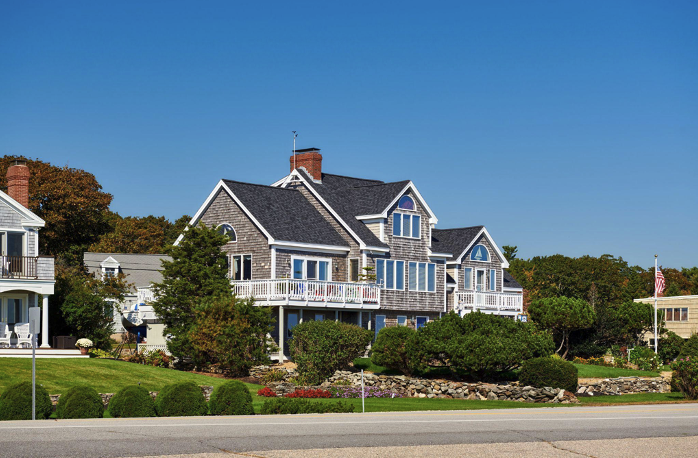
Roofs in Philadelphia are susceptible to erratic and inclement weather conditions. There are specific challenges that homeowners in this place face which affect the durability of their roofing materials. From freezing cold winters to scorching summers, Umbrella Roof is going to explain how the weather affects your roof can help you make wise choices about maintenance and material options.
Philadelphia is popular for its winter seasons marked by snow, cold temperatures, and ice. Roofs tend to get damaged under such circumstances more than any other time. When snow piles up on a rooftop, it adds excessive weight which results in structural overloads. Ice dams occur as a consequence.
These develop when melting snow re-freezes at the roof’s edges instead of draining away properly. What happens next? The water gets caught beneath shingles thereby seeping into the house leading to ruined roofs.
Freeze-thaw cycle is one of the most significant threats to roof longevity in Philadelphia. This happens when snow and ice melt during daytime only to freeze again at night. It makes roofing materials become prone to cracking or warping due to expansion and contraction on them. Consequently, these small cracks may turn into huge problems over time leading to extensive repairs that may be very costly for an individual homeowner.
Regular maintenance is necessary if you are to protect the roof of your house from severe winter weather in Philadelphia. It is important to also ensure sufficient insulation and ventilation so as to reduce the risk of ice dams on your roof. Another method is to put heating cables, which will help prevent the buildup of ice on it. Furthermore, clearing snow off your roof regularly can minimize its weight and avert damage.
The weather in Philadelphia is about more than just cold winters, there are also high winds intense rain and occasional storms that all impact on how durable a roof can be. Preparing your roof for these unpredictable weather patterns is essential for long-term protection.
Seek roofing materials that are designed specifically for storm resistance when choosing materials for your home’s roof in Philadelphia. For example, impact-resistant shingles have been made with hail and debris resistant material. Metal roofs are another good choice because they last longer and better resist high-velocity wind episodes. Storm-proofing the cover will add many years to its lifespan.
Strong wind gusts could easily destroy costly shingles allowing water into the interior by exposing the underlayment of a roof. Avoid wind damage by ensuring proper installation and secure fastening of roofing materials used on top of any building. Regular check-ups can catch loose shingles before they cause more problems over time.
Philadelphia summers are hot and muggy, which can affect roofing materials especially shingles. Humidity may cause mold and mildew on the roof that is not only unsightly but also weakens the shingle structure over time.
Heat and humidity combine to age roofing materials faster. When exposed to extensive heat for a long time, asphalt shingles become fragile, breaking easily. Roofs with poor ventilation are more susceptible to this problem. Proper ventilation allows heat to escape reducing temperatures of the roof extending its life.
To keep your roof in good shape during Philadelphia’s humid summer period, purchase moisture-resistant shingles. Additionally, removing debris and moss from the roof will help prevent moisture from being trapped against the shingles. Carrying out regular checks in summer can help detect possible problems before they worsen.
It is important that you choose appropriately for your roofing material so that it can withstand Philadelphia weather which has different extremes. Priority should be given to durability, resistance to temperature swings and heavy rains.
While Philadelphia isn’t as sunny as some other regions, UV rays can still cause significant damage to roofing materials. Over time, exposure to sunlight can cause shingles to deteriorate, leading to cracking, curling, and loss of granules. These issues can compromise the roof’s ability to protect your home.
For long-term durability, consider sustainable roofing materials that are resistant to both UV rays and the elements. Metal roofing, for instance, reflects sunlight, reducing heat absorption and extending the roof’s lifespan. Additionally, materials like slate and tile offer natural durability and can withstand the varied climate of Philadelphia.